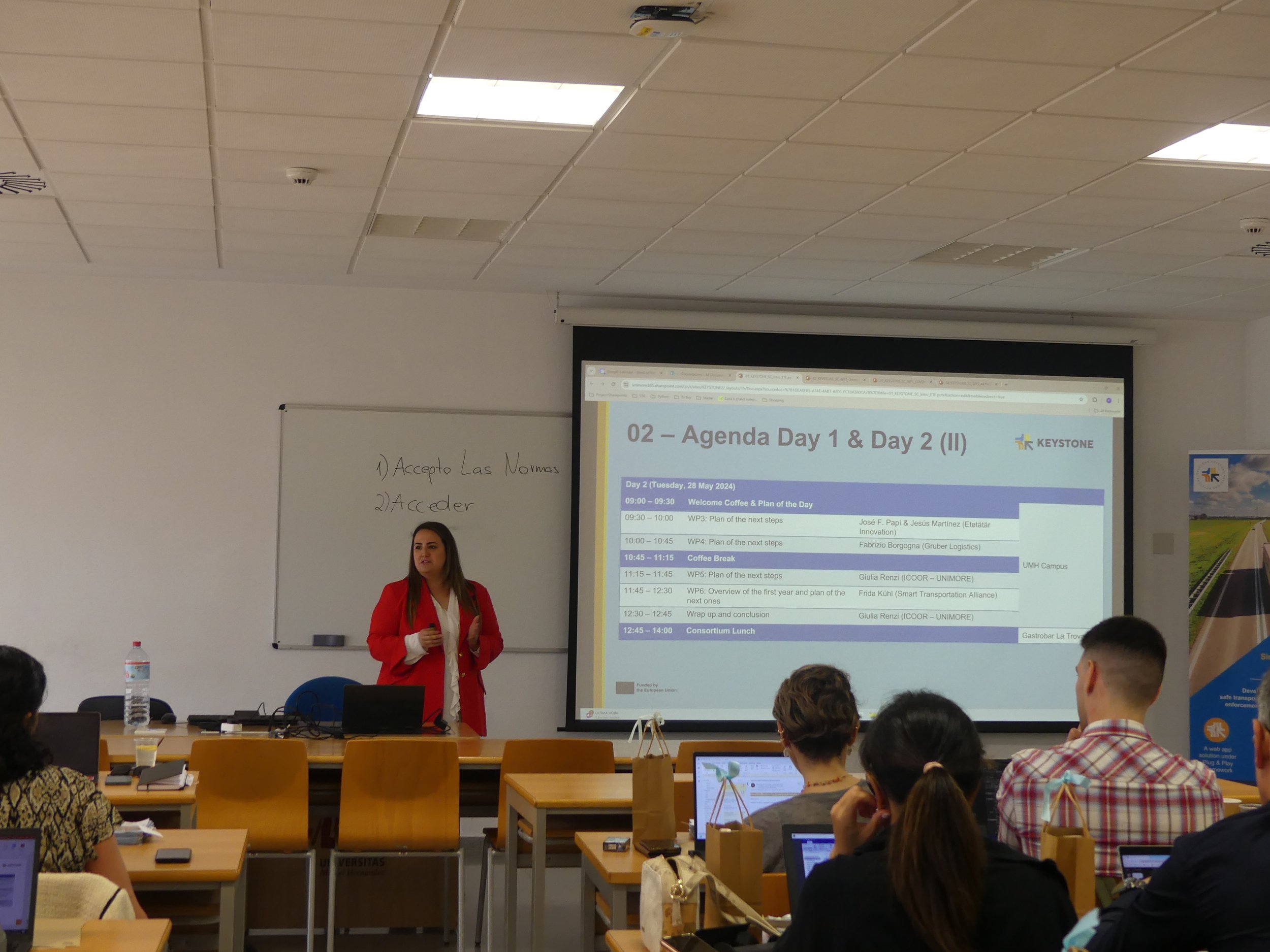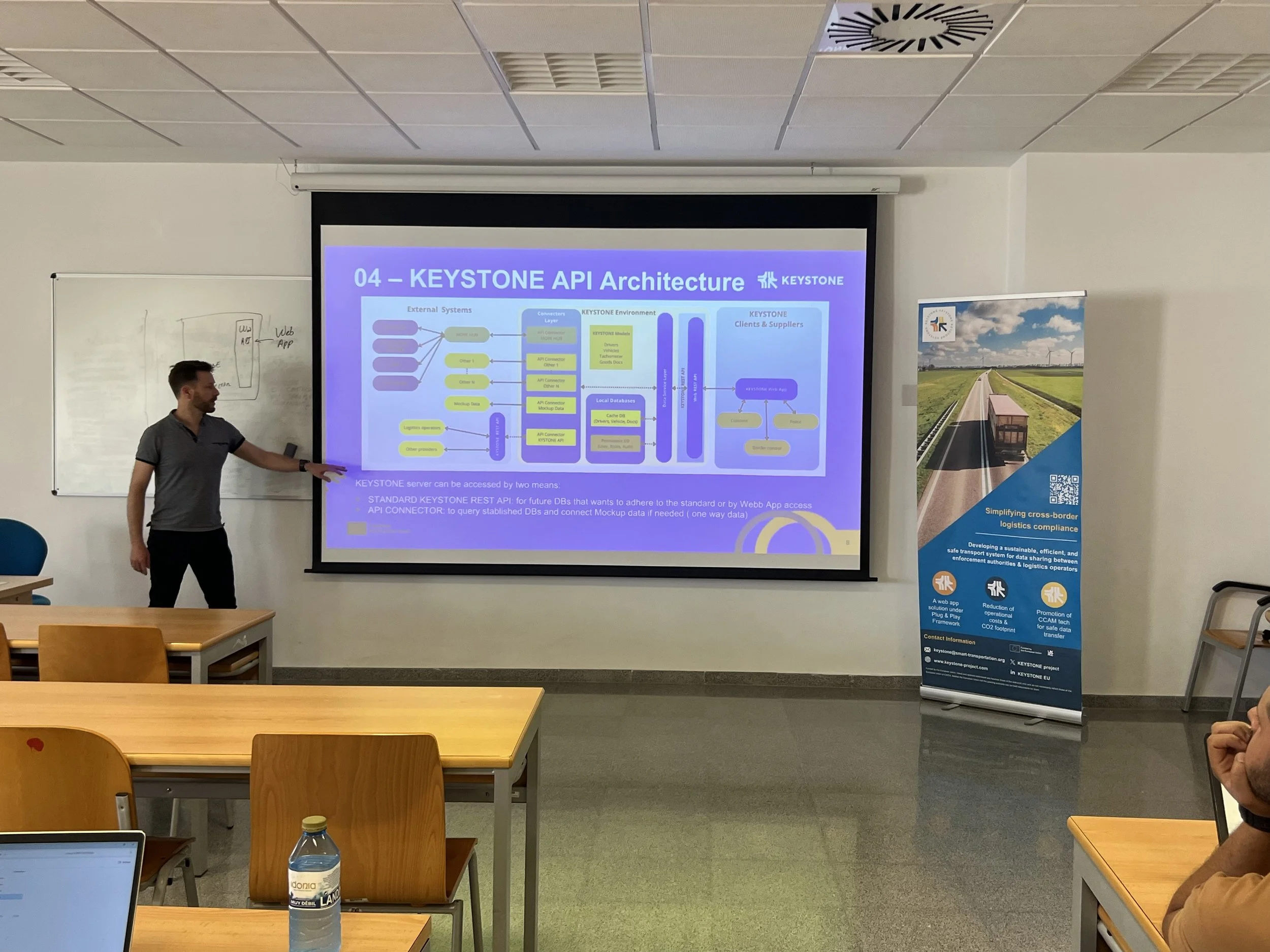Celebrating One Year of KEYSTONE: An Overview of Project Progress
The KEYSTONE Consortium during the General Assembly at the Faculty of Fine Arts of the University of Miguel Hernández in Altea, Spain on 27 and 28 May 2024.
The KEYSTONE project celebrates its one-year anniversary in June 2024. To celebrate this occasion and prepare for the second year of the project, KEYSTONE representatives united for a General Assembly meeting to review achievements, share updates, and plan for the next two years at the Faculty of Fine Arts of the University of Miguel Hernández (UMH) in Altea, Spain on 27 and 28 May 2024. The meeting was hosted by Etelätär Innovation, a KEYSTONE Consortium partner in charge of developing the web app of the project.
Day 1
The meeting started with a warm welcome by Dr José F. Papí, CEO of Etelätär Innovation, and followed by an overview of the first year from Mrs Giulia Renzi, Project Manager at the University of Modena and Reggio Emilia (UNIMORE), the project coordinator of the KEYSTONE project. Mrs Renzi led an interactive exercise to highlight what makes the KEYSTONE project different and showcase the strengths but also weaknesses spotted by all partners within the first year. Some of the strengths highlighted included excellent communication and collaboration across work packages, commitment to success, transparency, kindness, and gender equality.
In the following two days, a detailed overview of the completed and ongoing Work Packages (WP) was presented.
WP1 - Gap Analysis and State of the Art
The WP1, which established the baseline within the project and which has already ended, was presented by Dr Alexeis Garcia Perez, Visiting Professor at Coventry University and also the task leaders of the WP. Dr Garcia highlighted the data management plan that was followed, with emphasis on the principles, standards, and guidelines. Additionally, Dr Sabino Metta, Knowledge Technologies Researcher & Project Manager at Cefriel, presented the gap analysis and state-of-the-art review that was conducted. He shared insights from the stakeholder survey completed on 24 May 2024, which gathered responses from 317 stakeholders, including logistics operators, freight terminals, and enforcement authorities from 20 European countries. The survey aimed to map stakeholder needs and barriers, that will further assist the conceptualisation and development of the KEYSTONE web app solution. Mrs Camille Leotta, Functional Analyst at T-Bridge took the floor and explained the creation of use cases based on input from focus groups and other sources, and identified various gaps that will be taken into consideration in future steps. Finally, Mr Fabrizio Borgogna from Gruber Logistics shared insights on the move towards practical applications, outlining two perspectives (private and public) that will define the KEYSTONE Digital Ecosystem, its interface and its functionality.
WP2 - Development of an implementation framework for Plug & Play
Mrs Zoe Petrakou, Project Manager at Aethon Engineering presented research findings on current methodologies for API model creation, aiming to develop an API reference model with full documentation. She discussed how key findings from WP1 were translated into requirements for WP2 and the progress made in retrieving and sending enforcement data using the API reference model.

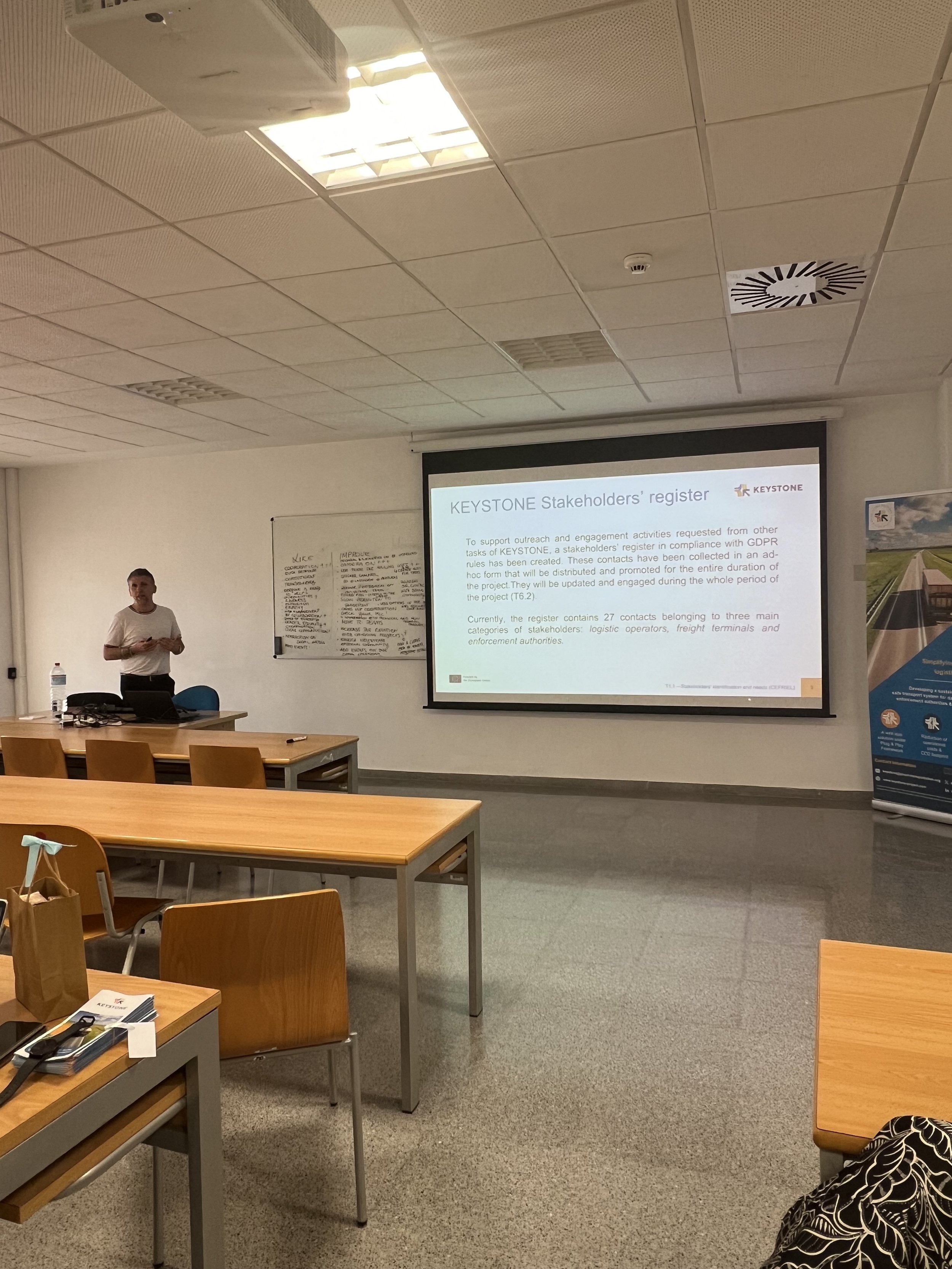

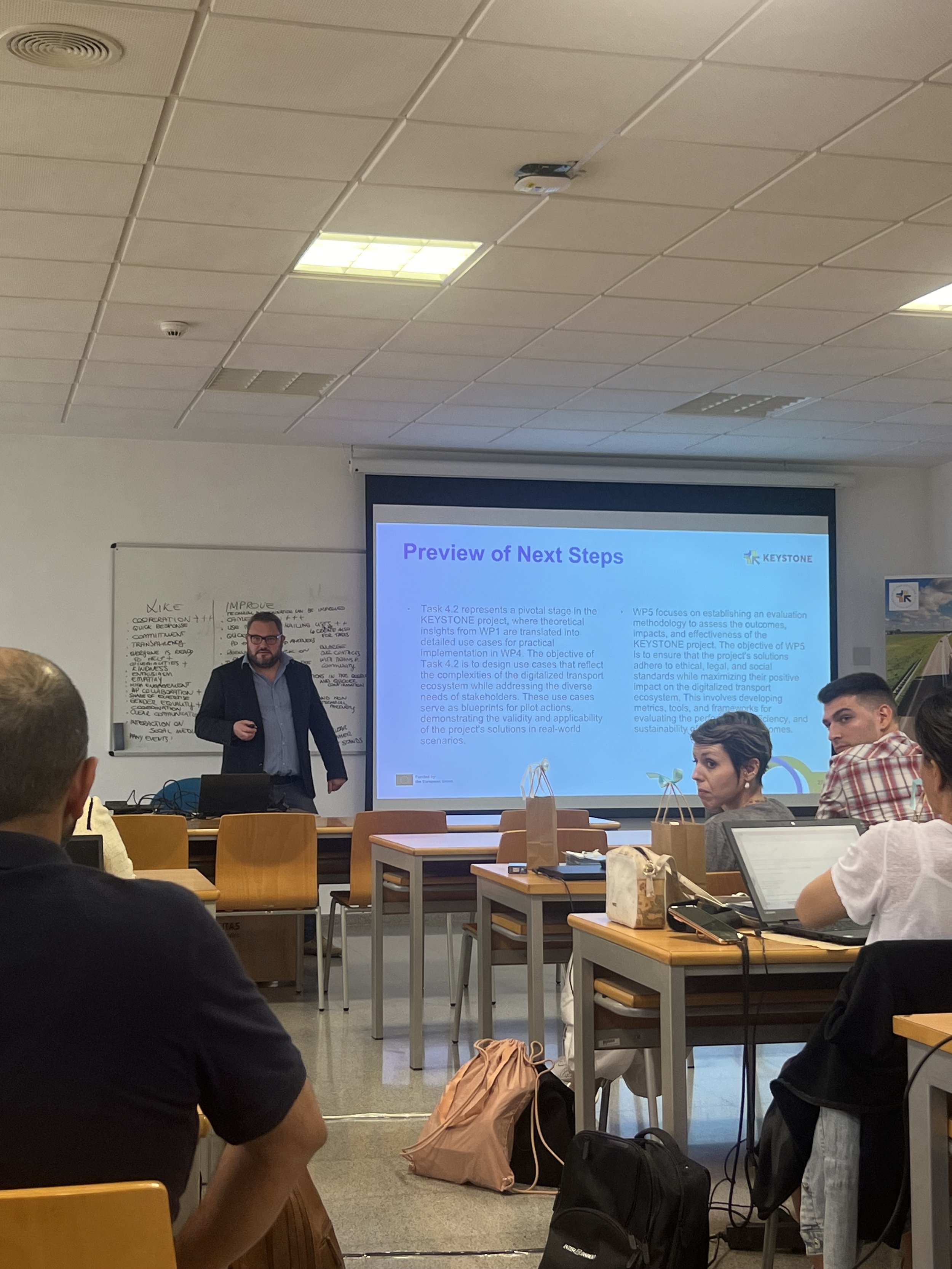
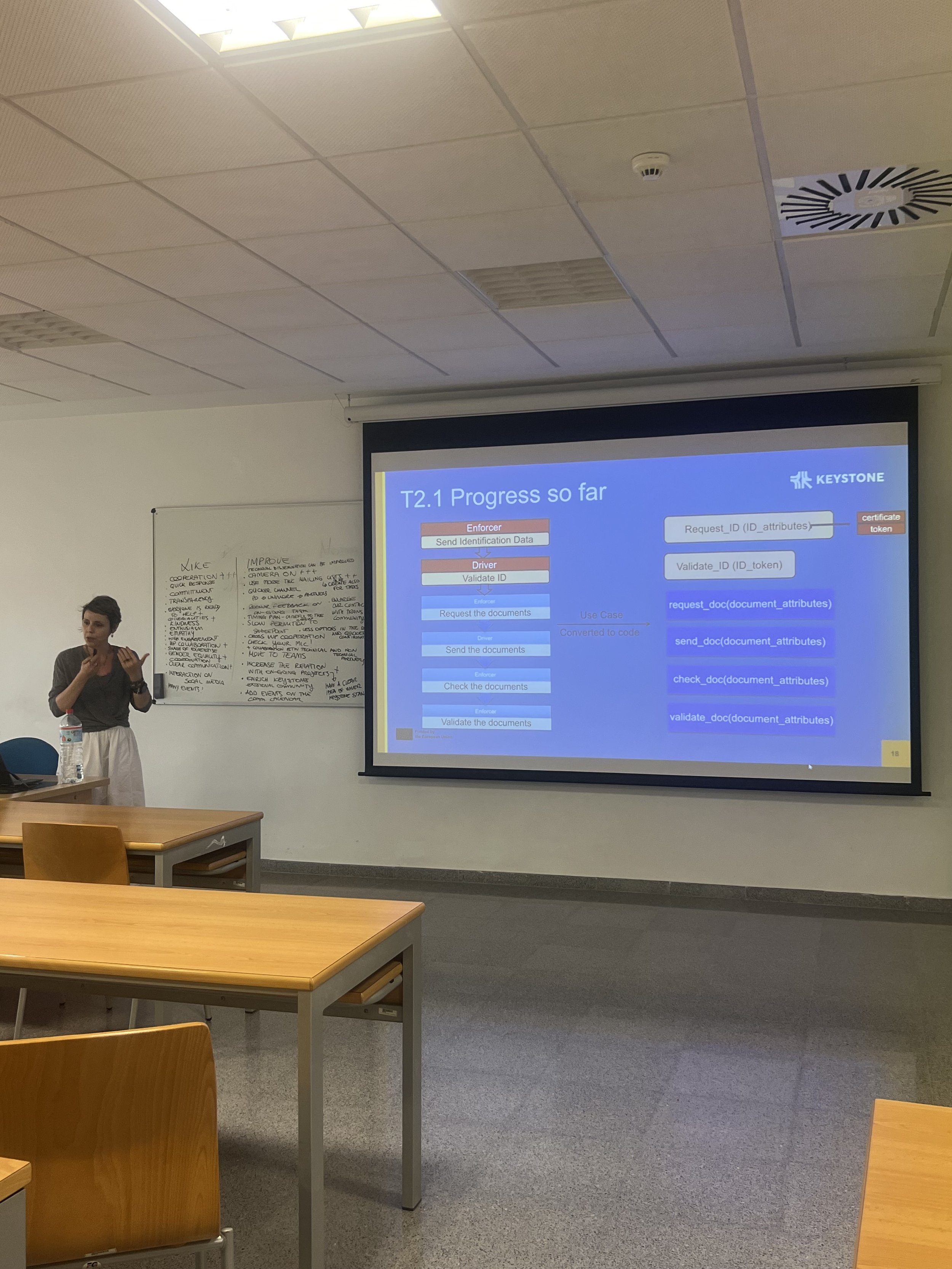
The day was wrapped up with a guided tour of the historic town of Altea and a social dinner that allowed all partners to discuss further the project activities.
Day 2
WP3 - Toward Plug & Play Implementation
Mr Jesús Martinez Cuadrado (Etelätär Innovation) presenting the architecture of the API framework.
Day 2 started with a presentation from the host organisation, led by Dr José F. Papí and Mr Jesús Martinez Cuadrado, CTO of Etelätär Innovation. They outlined future steps for WP3, focusing on the development and conceptualisation of the web app solution for real-world piloting. Insights were shared on the methodology, architecture of the app, and the time plan to organise and schedule activities within the Work Package.
WP4 - Piloting
Mr Fabrizio Borgogna from Gruber Logistics, the WP4 leader, provided an overview of activities focusing on the development and application of the demonstration scenarios of the KEYSTONE solution. He detailed the objectives concerning the procedures and the pilots, ensuring practical application and evaluation.
WP5 - Evaluation, Guidelines and Ethical Impact
Mrs Friederike L. Kühl (STA) showcasing all the KPIs reached within the first year of KEYSTONE.
Mr Paulo Cantilano, Project Coordinator at Interuniversity Consortium for Optimization and Operations Research (ICOOR), presented highlights on WP5 activities, which will address all evaluating activities performed in KEYSTONE. He outlined the methodology to be followed and the upcoming activities to create an efficient evaluation framework and how an evaluation of the KEYSTONE solution will be performed with the Digital Transport and Logistics Forum (DTLF). Additionally, he explained how practical solutions will be developed regarding data protection, ethical, social and legal issues within the KEYSTONE technologies.
WP6 - Communication, Dissemination, Replicability and Exploitation
Mrs Friederike L. Kühl, Programmes Coordinator at the Smart Transportation Alliance presented an overview of the communication and dissemination activities, emphasising the extensive outreach achieved in the first year and the KPIs met. A plan for future steps was also discussed to keep all partners informed about ongoing and upcoming activities. Mrs Brikena Kolici, Internal Communications Coordinator at Cefriel, presented to partners the recent updates of the stakeholder community, encouraging all partners to communicate it across their networks. Mrs Francesca Api, Project Manager at RINA presented the identification of Key Exploitable Results (KERs) and a more detailed overview of stakeholder engagement strategies. The strategy included steps to increase the number of stakeholders and enhance engagement. The market uptake strategy, following the Blue Ocean Analysis and Ten Types of Innovation Analysis per KER, was also presented by Etelätär Innovation, aiming to boost innovative products and solutions.
Lastly, an Exploitation Workshop was offered to introduce a detailed definition of the exploitable results, the KERs, and the methodology to be followed to maximise impact.
The Steering Committee meeting was a successful reflection on the first year of the KEYSTONE project, celebrating achievements and setting the stage for the next two years. Additionally, it was a great opportunity for all partners to unite, exchange knowledge and insights and spend some quality time together.
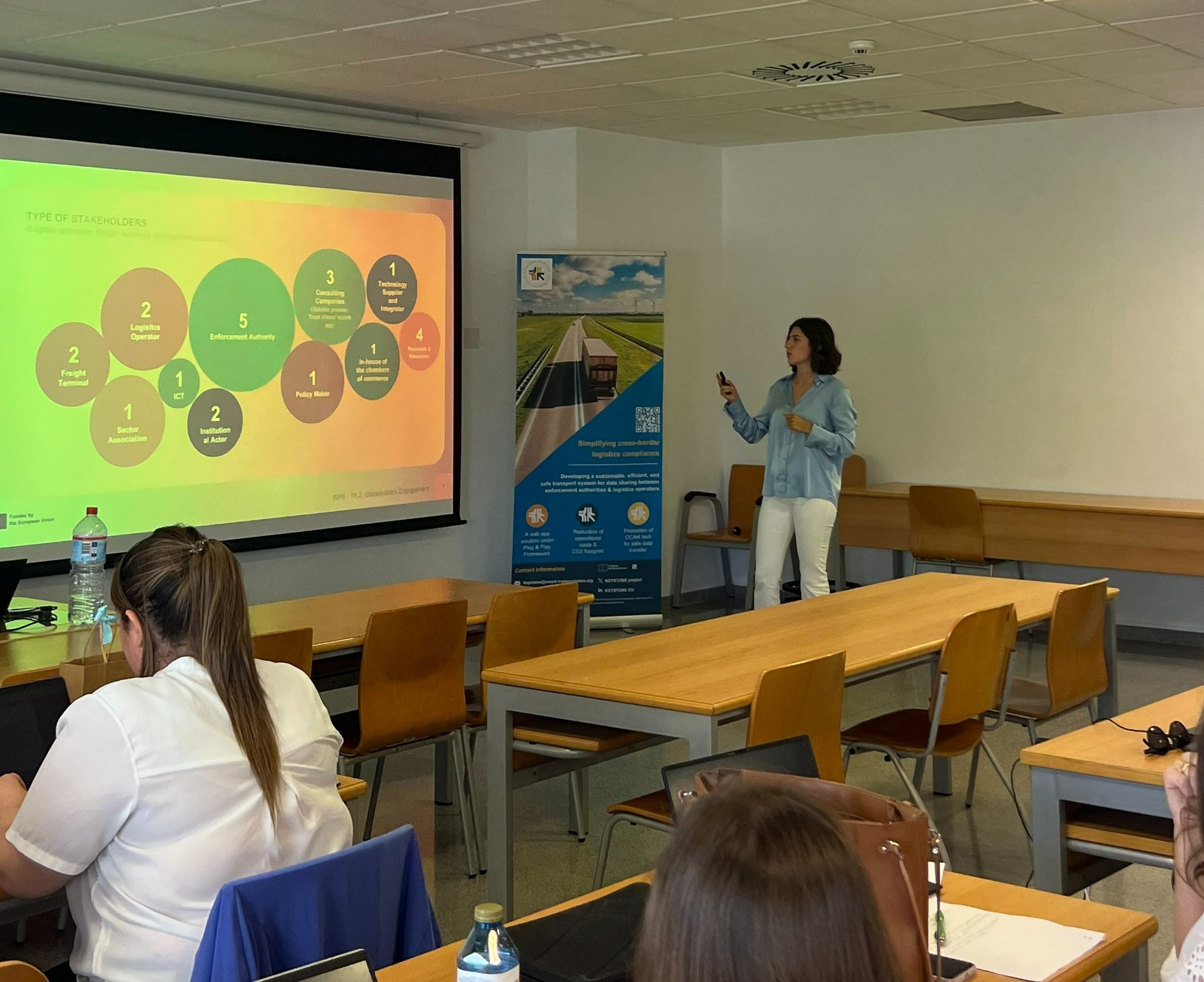
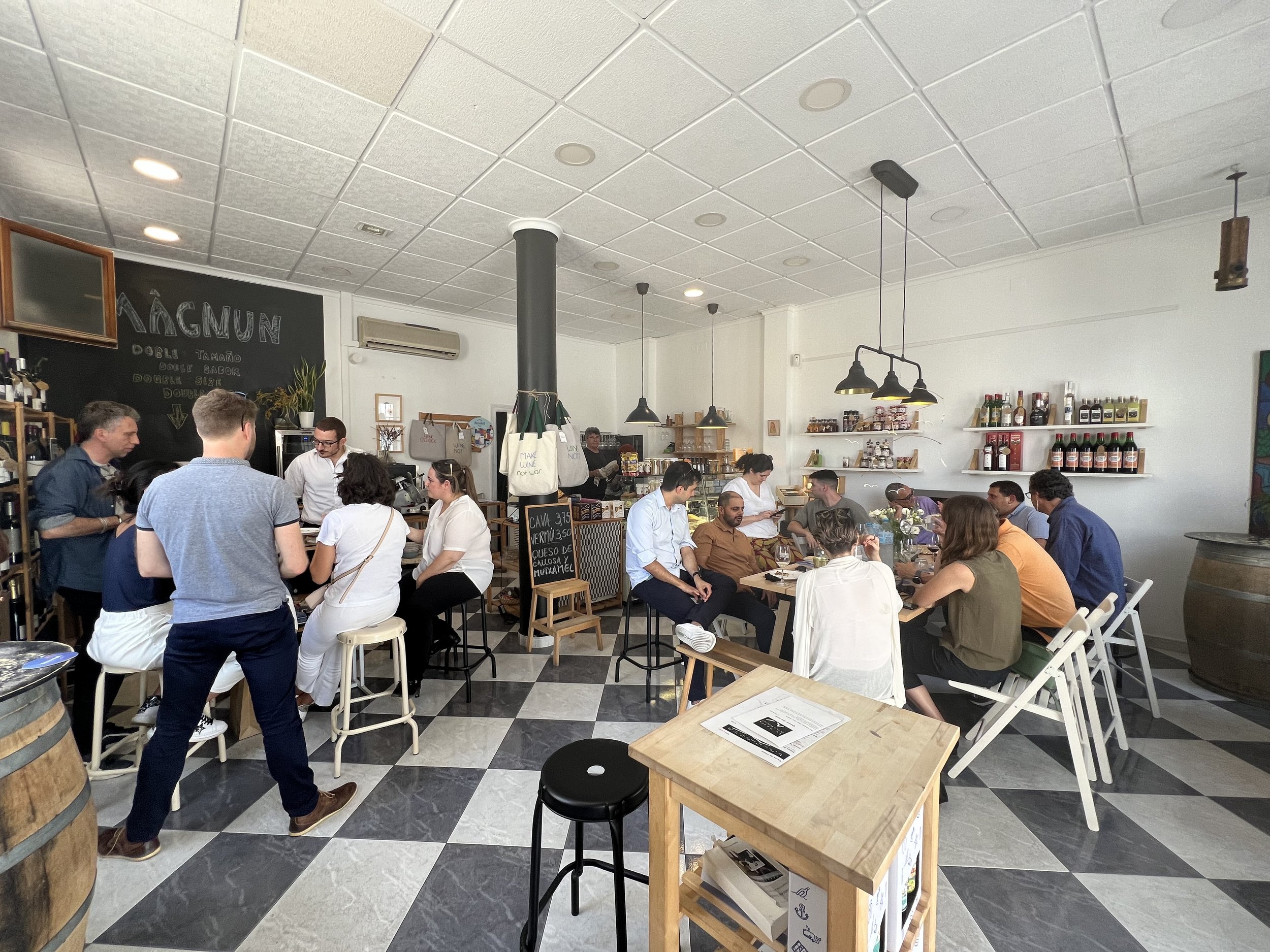



With strong foundations in place and a clear plan moving forward, the project aims to continue fostering collaboration and innovation within the transport and logistics sector that will simplify cross-border logistics compliance.We are looking forward to the next meeting!
If you want to join the KEYSTONE team in shaping the future of transport and logistics in Europe, you can become an exclusive member of the KEYSTONE stakeholders community and be the first to learn our latest updates.




